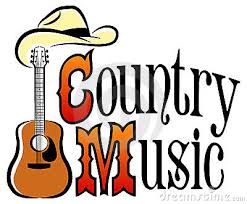Music is an eternal deity of love. Music is
a universal truth that defines how space got created when the particles
collided. When two atoms collide with each other it creates a dome of the
vibrational genre that is music. Music is the pulse that creates an oscillatory
effect on the body that is permanent. Music has no sign language, a deaf
persona with his senses can taste the music.
The music is played with the help mixture
of vocals, instruments, and audience. Music is the entity of vibrational force
that when gets stuck with someone's, heart his body gets danced without any
movement of the body. Music is everywhere in this global world
Music creates an influential effect on the
senses. Music gives enlightenment to those whose last wish is to listen to it.
Music provides an energetic luster on the loved ones with the glittery lining
of colors. Music connects loved ones that live far.
When Goddess Saraswati (goddess of arts,
music, and dance) plays Veena: all gods dance with just plucking of a string of
Veena. Music creates a harmonic vibration that makes everyone feel good. Music
is an island of octaves that has no medium.
History of Dhrupad
A kind of music that originated during the ancient period 200 B.C.E - 200 C.E from the Indian Sub-Continent. The roots of Dhrupad Music is very ancient it had been described from the religious text Natyashastra by Bharata. Dhrupad is taken from Sanskrit whereas Dhruva means immovable and pada means verse. In Carnatic music called Haveli Sangeet. It is one of the core forms of Classical Music that is found in the Whole Indian Sub-Continent. The earliest source of Dhrupad music is described in Ain-i- Akbari Written by Abul Fazl
Dhrupad Music is spiritual, heroic, thoughtful, virtuous, embedding moral wisdom or a solemn form of song-music combination.
Dhrupad is performed by a single persona. It is monophonic in nature. Dhrupad is an ancient genre and another music called khyal is originated from it.
Instruments Used in Dhrupad Music
Pakhawaj, Mridanga, Rudra-Veena, Tabla, Surbahar, Sursringar, Cylindrical Drum, Veena are some of the notable instruments used in Dhrupad Music.
Characteristics of Dhrupad Music
A Dhrupad has at least four stanzas, called Sthayi (or Asthayi), Antara, Sanchari, and Abhoga. The Sthayi part is a melody that uses the middle octave's first tetrachord and the lower octave notes. The Antara part uses the middle octave's second tetrachord and the higher octave notes The Samcari part is the development phase, which holistically builds using parts of Sthayi and Antara already played, and it uses melodic material built with all the three octave notes.The Abhoga is the concluding section, that brings the listener back to the familiar starting point of Sthayi, albeit with rhythmic variations, with diminished notes like a gentle goodbye, that are ideally mathematical fractions such as dagun (half), tigun (third) or caugun (fourth)
Famous Personas in Dhrupad Music
Ustad
Baha-ud-din Dagar, Pt. Uday Bhawalkar, Dagarvani, Us. Sayeeduddin Dagar,
Umakant Gundecha, Sunita Amin, Uday Bhawalkar, Wasifuddin Dagar,
Nirmalaya Dey






















